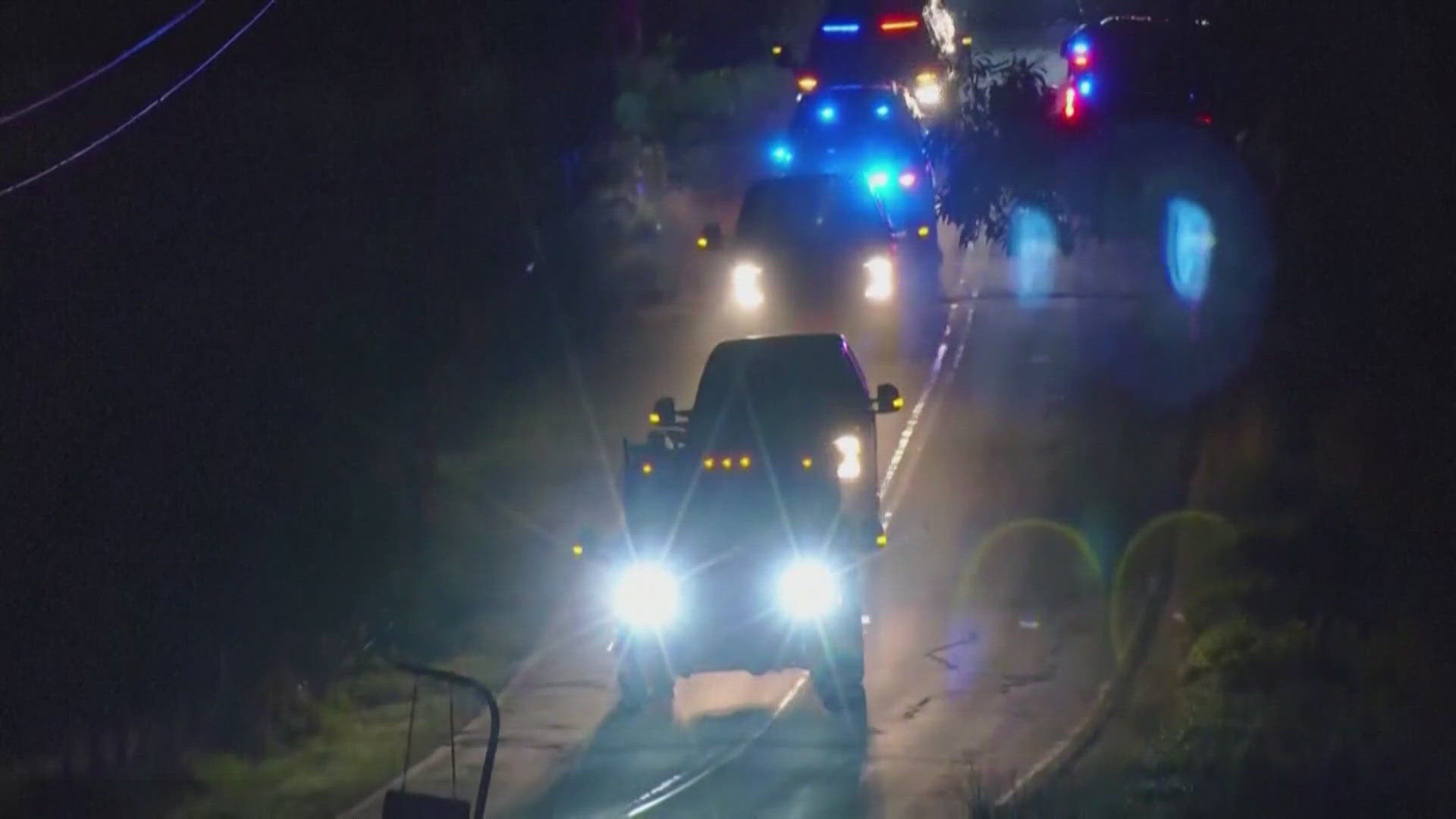PORTLAND, Maine — Cumberland County Sheriff Kevin Joyce publicly and formally denied allegations Tuesday that were made against his department in early May in a Portland Police Department after-action report of the response to the Lewiston mass shooting.
Portland police filed its "after-action report" in December. The report became public in early May.
In the report, Nick Goodman, commander of the Portland Police Department's Special Reaction Team, wrote that multiple law enforcement agencies started "self-dispatching" to the scenes in Lewiston and that his tactical team was almost run over by Cumberland County's tactical team, called the Emergency Services Unit (ESU). The ESU is a multijurisdictional tactical team.
On Tuesday, Sheriff Joyce released a full-page statement "wholeheartedly" denying the allegations and explaining his findings. He wrote that during the internal investigation, his team gathered statements, conducted interviews, and reviewed electronic evidence from all members of the regional tactical team.
Regarding the claims of intoxication, Joyce wrote that the tactical team members who responded to Lewiston that evening either "came straight from a training, from working a shift at their respective law enforcement agencies, or just arrived home from a training day. The driver of our Mine Resistant Ambush-Protected vehicle (MRAP) was a police officer on duty in his municipality and had been called in early for his shift to assist fellow officers at an unrelated incident. He was deployed shortly after."
He added that the Maine State Police asked for the ESU to respond to Lewiston again, two days after the shooting, to assist with following up on leads of suspect sightings.
"If our team had intoxicated members, I would pose the question, why would we be requested to return to Lewiston and further aid the investigation and search? If the allegations were concerning enough to write in an After-Action Report, then why was it 6 months before I learned about these claims through the media, and not by the agency making the accusations? Allegations such as those described were serious enough that in the days or weeks after the shooting, a formal report should have been made to my office. Additionally, I was at the Command Post that evening before our tactical team arrived, and left the Command Post the next morning when our tactical team was relieved to go home and rest. During that timeframe no one brought the concern to my attention," Joyce wrote.
To the accusations of self-deployment in the same after-action report, Joyce called those claims "false," saying two separate members of the Lewiston Police Department had asked the ESU to respond and "send as much help as possible."
"I am confident that our members responded to the mass casualty event in Lewiston in both a sober and professional manner. I am proud of my staff for their actions and response on that fateful day. Despite the allegations made, the Cumberland County Sheriff’s Office is committed to working professionally and collaboratively with all law enforcement in service to our communities," Joyce wrote.
Following the claims in Portland's after-action report in early May, Sheriff Joyce met with Portland police Chief Mark DuBois. At the time, Joyce called the meeting "productive."
He declined to comment further on the situation.

